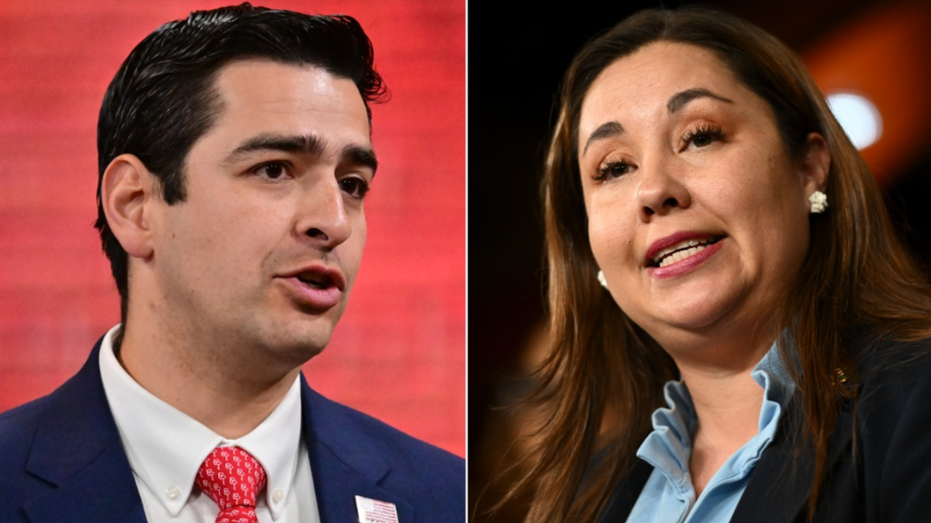Senate GOP embraces new strategy on reconciliation bill: Whatever can pass the House
Senate Republicans have a new, emerging strategy on their massive reconciliation bill: See what can survive the House. It’s easy to see where that comes from. Given its incredibly thin margin and fractious membership, the GOP House will likely have a tougher time passing any party-line legislation. Speaker Mike Johnson has pushed for putting priorities on the border, energy and taxes in one massive bill, believing that will make it easier to pass. Senate Republicans, many of whom favor a two-track approach that would split off taxes from the border and energy policies, are set to meet with President-elect Donald Trump for the first time since taking back the chamber on Wednesday evening. “I’m for whatever can get through the House. …It’s all on the back of the speaker,” said Sen. Tommy Tuberville (R-Ala.). He added that Trump has “talked quite a bit with the speaker and I think the speaker has got him convinced he can get one done.” “Whatever they can send to us, we can pass,” echoed Sen. Markwayne Mullin (R-Okla.). “I think it’s going to be very difficult for the House to deliver two things, though, but if they can, wonderful.” Senate Republicans are hoping to get clear marching orders from Trump during their meeting. And while Trump has waffled on whether to embrace the one- or two-bill strategy, he has also signaled the plan is for the House to move first, telling reporters in Florida on Tuesday that “it goes through the House first, and the question is whether or not we do the two bills or one bill.” This isn’t a new position for the Senate. Though Majority Leader John Thune became the first GOP leader to talk specifics about the reconciliation strategy when he told Republicans last year they would do two bills, he has found those plans scrambled by the House’s mathematical reality. Working with a microscopic majority, House GOP leadership has struggled to consistently bring its members together, even on must-pass legislation like government funding or raising the debt limit. “I do think it’s important” for the House to move first, Sen. Kevin Cramer (R-N.D.) said. “I think that it’s more complicated over there.” Senate Majority Whip John Barrasso (R-Wyo.) acknowledged that his preference was for two bills, giving the party an early win on the border, but “the House is afraid they can’t get two passed.” Johnson can only lose one GOP member right now on any party priority, and that margin is set to decrease once a few members leave for positions with the Trump administration. At certain points, Johnson won’t be able to lose any Republicans if he wants to pass party-line legislation. Full unity will be tough on a bill that not only includes complicated tax priorities, but also potentially raising the debt limit and spending cuts. Sen. Mike Rounds (R-S.D.) said he expects state and local tax deductions will be a significant point of debate in any budget reconciliation deal, particularly in the House. Republicans at the heart of the SALT debate will meet with Trump this weekend. Daniella Diaz contributed to this report.
Senate Republicans have a new, emerging strategy on their massive reconciliation bill: See what can survive the House.
It’s easy to see where that comes from. Given its incredibly thin margin and fractious membership, the GOP House will likely have a tougher time passing any party-line legislation. Speaker Mike Johnson has pushed for putting priorities on the border, energy and taxes in one massive bill, believing that will make it easier to pass.
Senate Republicans, many of whom favor a two-track approach that would split off taxes from the border and energy policies, are set to meet with President-elect Donald Trump for the first time since taking back the chamber on Wednesday evening.
“I’m for whatever can get through the House. …It’s all on the back of the speaker,” said Sen. Tommy Tuberville (R-Ala.). He added that Trump has “talked quite a bit with the speaker and I think the speaker has got him convinced he can get one done.”
“Whatever they can send to us, we can pass,” echoed Sen. Markwayne Mullin (R-Okla.). “I think it’s going to be very difficult for the House to deliver two things, though, but if they can, wonderful.”
Senate Republicans are hoping to get clear marching orders from Trump during their meeting. And while Trump has waffled on whether to embrace the one- or two-bill strategy, he has also signaled the plan is for the House to move first, telling reporters in Florida on Tuesday that “it goes through the House first, and the question is whether or not we do the two bills or one bill.”
This isn’t a new position for the Senate. Though Majority Leader John Thune became the first GOP leader to talk specifics about the reconciliation strategy when he told Republicans last year they would do two bills, he has found those plans scrambled by the House’s mathematical reality. Working with a microscopic majority, House GOP leadership has struggled to consistently bring its members together, even on must-pass legislation like government funding or raising the debt limit.
“I do think it’s important” for the House to move first, Sen. Kevin Cramer (R-N.D.) said. “I think that it’s more complicated over there.”
Senate Majority Whip John Barrasso (R-Wyo.) acknowledged that his preference was for two bills, giving the party an early win on the border, but “the House is afraid they can’t get two passed.”
Johnson can only lose one GOP member right now on any party priority, and that margin is set to decrease once a few members leave for positions with the Trump administration. At certain points, Johnson won’t be able to lose any Republicans if he wants to pass party-line legislation. Full unity will be tough on a bill that not only includes complicated tax priorities, but also potentially raising the debt limit and spending cuts.
Sen. Mike Rounds (R-S.D.) said he expects state and local tax deductions will be a significant point of debate in any budget reconciliation deal, particularly in the House. Republicans at the heart of the SALT debate will meet with Trump this weekend.
Daniella Diaz contributed to this report.



